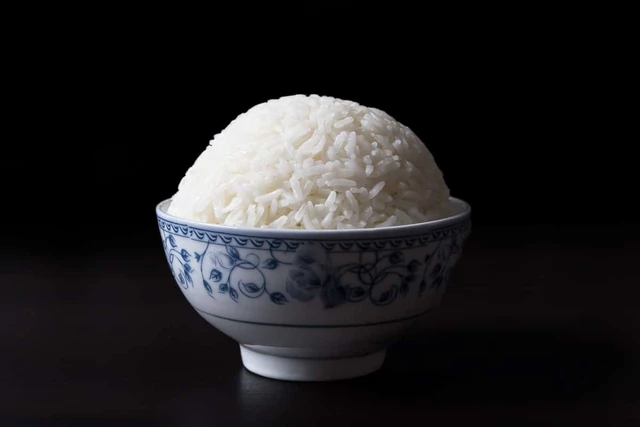White rice is a staple in many households because it is easy to cook, light on the stomach and all age groups find it delicious.
People who have struggled with excess weight and have tried to lose weight have come to learn that rice, especially white rice, makes it hard to lose it. It has a bad reputation for several other nutritional problems.
White rice got a bad reputation because it is highly processed and lacks the vitamins and minerals, present in its counterpart, brown rice. While it is delicious and easy to tempt us to have as often as possible, it would be ill-advised give in to that temptation according to nutritionists.

Eating too much white rice might not be great for your health for these reasons:
Increases diabetes risk
The glycemic index (GI) is a measurement of how quickly your body converts carbohydrates into sugars that can be absorbed. Low-GI foods appear to be healthier for persons with type 2diabetes, as they generate a slow but steady rise in blood sugar levels. Foods with a higher GI might induce fast rises in blood sugar, explains a study published in the Nutritional Journal. And white rice happens to have a GI of 64, causing it to turn into blood sugar more rapidly than brown rice.
Elevates metabolic syndrome risk
The term “metabolic syndrome” refers to a group of risk factors that can increase your risk of developing health problems like heart disease, type 2 diabetes, and stroke. People who consume big amounts of white rice on a regular basis have a higher chance of developing metabolic syndrome, according to a study published in The American Journal of Clinical Nutrition. However, the link between it and heart disease is still unknown.
Linked with weight gain
White rice has often been linked to unwanted weight gain. Since it is considered a refined grain and has been stripped of its bran and germ, white rice is considered bad for people trying to lose weight. Many studies have linked refined grain diets to obesity and weight gain, and belly fat. Interestingly, other studies have shown no link. On the contrary, diets heavy in whole grains, such as brown rice and brown posho have been demonstrated to improve weight loss and help maintain a healthy body weight more consistently.
May increase cancer risk
Arsenic-contaminated rice is grown in some parts of the world. Rice absorbs arsenic at a higher rate than most other food crops. When soil or water supplies are contaminated with arsenic, this becomes a concern. Several studies have linked arsenic poisoning with an increased risk of cancer, heart disease, and type 2 diabetes. It is also harmful to nerves and may impair brain function.
Is it all bad?
It isn’t all bad. White rice is criticized for its lack of nutritional value and brown rice is a better option it’s not all bad. For instance, people who eat a low fibre diet or experience nausea or heartburn may find white rice better to digest.
While brown rice is a better option due to its high nutritional value, white rice if eaten in moderation won’t be as harmful.



